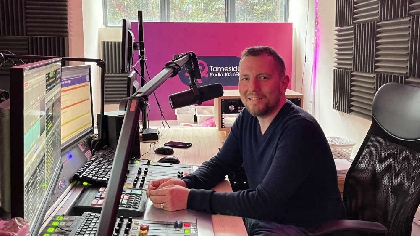
Should we be getting back to the office more often? That was the question posed in a recent Panorama, and comments made by Stuart Rose, the former M&S and Asda boss, made headlines when he said: "We are creating a whole generation and probably a generation beyond that of people who are used to not doing what I call proper work. I believe that productivity is less good if you work from home. I believe that your personal development suffers".
Many have jumped on these comments and disputed them. Labour's Diane Abbott tweeted: "Millionaire businessman says working from home not real work. But at M&S, he earned £875,000 for working part time". Saucer of milk for table two, please.
Revelations from the Panorama programme include the fact there's been a 350% increase in rounds of golf played during the 'working week', and only 41% of people commute into work for every shift. 13% never travel into work, whilst over a quarter have hybrid working arrangements. Also, a quarter of all dry cleaners have closed since the pandemic, with pyjamas negating the need for a nice suit. I suppose golf clothing probably isn't dry clean only, in the most part.
Stuart Rose argues that those driving trains, carrying out operations and working in service industries have the same life responsibilities to juggle, but have no choice but to go into work. This thorny issue seems to have become one of the latest battlegrounds in the rather tiresome 'culture wars', with right wing papers like the Telegraph and Mail, and those strange TV channels that not many people watch often highlighting the rise in working from home in a negative light. Lord Sugar has also been a vocal critic in the past, labelling individuals who work from home as "lazy gits" and saying remote working is a "total joke".
The Office for National Statistics is currently attempting to cajole its civil servants into putting in what they define as a 'reasonable level of office attendance', and many big companies in both the UK and USA are also attempting a shift back towards more days in the office. Based on my own travels to present my Breakfast Show live on Tameside Radio, Mondays and Fridays are anecdotally not as busy, which Panorama seemed to suggest is also the case on the Tube in London.
Personally, I like having a separation between home and work, and enjoy the social elements of working with a team of people who I can chat to. Even during the pandemic, I felt lucky to be able to carry on broadcasting live shows from Doncaster at my last radio station in Doncaster, which has sadly now been swallowed up along with so many others to become part of a national brand.
My wife Sofia is only required to go into the office a couple of days a week, and that hybrid working arrangement works really well for her in terms of getting stuff done. I understand if you're a sandwich shop or dry cleaning business that's lost a huge amount of passing trade that you'll feel rather embittered about that drop in custom. Town and city centres will need to find a new use for vacant office space in the coming years, as I suspect however hard companies try to reverse the Covid-inspired trend, things are never going to return to the way they were before the pandemic hit.
It's not really something I feel particularly cross or passionate about, as I think everyone's circumstances are different. I do find it slightly curious that some people get so worked up about the subject. I will admit do feel a smidgeon of envy when thinking about the time savings enjoyed by home workers, and sometimes blame the fact I have to factor in commuting time for the fact I haven't been to the gym in ages. In reality, I'm just quite lazy.
I think it's misguided to blame home working on the recent lack of growth in the economy, to be honest, but I can see the potential for a generation losing social skills as a result of living most of their lives wrapped in their own bubble. In other words, I suppose I can see both sides of the argument, which feels like a bit of a politician's answer. I'd love to hear your thoughts. Home working...good or bad? Do we all need to get back to the office more, or is this an approach as prehistoric as the dinosaurs?


 Alex B Cann column - the lost art of letter writing 20/02/26
Alex B Cann column - the lost art of letter writing 20/02/26
 Alex Cann's weekly blog - 9th January
Alex Cann's weekly blog - 9th January



